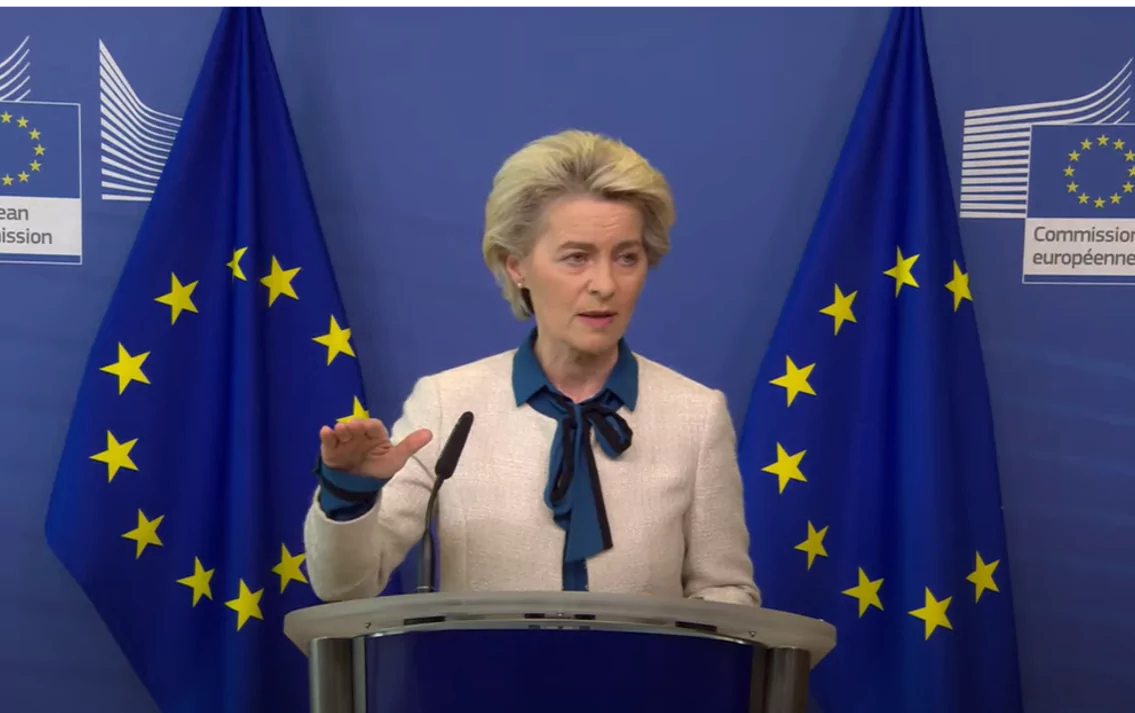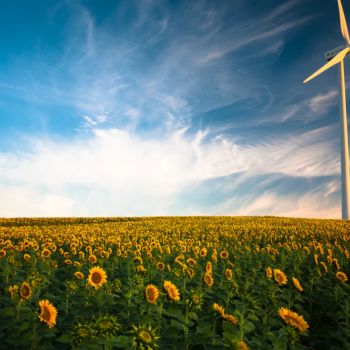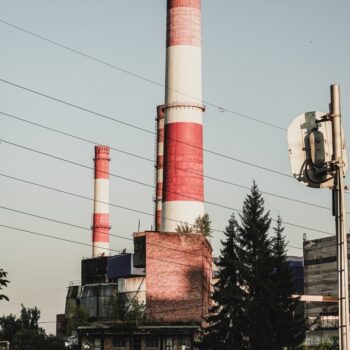The European Commission has released its much-awaited REPowerEU plan with a threefold objective: reduce dependency on Russian fossil fuels, accelerate EU transition to a clean economy, and increase the resilience of the EU energy system. The plan had been outlined on 8 March, in response to Russia’s war against Ukraine, and against the backdrop of rising energy prices in Europe. Today’s announcement has also presented the EU’s External Energy Strategy, which aims to shape the EU’s future energy diplomacy and the external dimension of the EU Green Deal.
- The Commission recognises the role of accelerated deep decarbonisation to stop financing Putin’s war. Yet, it is not matching this with an agenda that uses the clean energy transition as its geopolitical anchor.
- REPowerEU’s new targets for reducing energy consumption and increasing renewables will contribute to higher ambition in the ‘Fit for 55’ package negotiations, but support for new gas infrastructure will make the transition costlier than needed.
- Selling additional emission permits as a means of financing REPowerEU sets a dangerous precedent and risks jeopardising the EU’s climate targets.
REPowerEU reaffirms the EU’s commitment to climate action and clearly points at the European Green Deal as an existing tool that already offers solutions to transform our energy system – as called for by E3G and 11 other business and civil society organisations. REPowerEU takes the project to another level by saving energy, accelerating the phase-out of fossil fuels and kick-starting investment on a new scale. Prompt implementation of these new measures depends on co-legislation process now, hence this moves the spotlight on MEPs and Ministers in the coming weeks.
REPowerEU and reduction of energy consumption
The plan aims to cut 30% of gas consumption by 2030, with the associated savings on gas import expenditures. However, the plan does not offer a tangible enough signal on the consistency of this diversification strategy with climate targets and future demand projections. Instead, it supports new gas infrastructure investments and unrealistic hydrogen and biogas targets. The European Council in May and June, as well as the ‘Fit for 55’ negotiations on the Renewable Energy and Energy Efficiency directives, will have to accompany the new ambitions but also address the risks of lock-in and rising prices for consumers.
The modelling used by the Commission to devise fresh targets in the different ‘Fit for 55’ proposals was based on the energy landscape and pricing of 2021. The numbers are outdated and must be adapted to the new geopolitical and economic reality that is reflected in the EU Save communication. The Commission has understood that a faster reduction of energy use also requires the right measures and framework conditions, so the Council and European Parliament must now translate beneficial plans into reality for European citizens.
REPowerEU and industry decarbonisation
REPowerEU also recognises the huge, unleashed potential to reduce fossil gas use in industry: by 2030, 60% of gas consumption, or almost a third of Russian imports, can be cut in industry alone. For that, government and industry actors need to incentivise and prioritise energy efficiency and direct electrification. The communication, however, falls short on setting out how this is to be delivered. Moreover, the proposal to raise revenues by auctioning Emissions Trading allowances currently held by the Market Stability Reserve sets a dangerous precedent that risks jeopardising the EU’s climate targets.
EU’s external energy strategy
The part of the package addressing EU’s external engagement on energy is arguably its weakest link. Heavily focusing on securing non-Russian fossil fuel supplies, it does not match the domestic ambition to accelerate the implementation of Fit for 55. It has little concrete to offer on how a clean energy cooperation scale-up worldwide can ease gas markets and bring relief to partners suffering from high oil and gas prices – thereby fostering stronger global partnerships. The re-commitment to the Just Energy Transition Partnership for South Africa is arguably one of the few positive elements. Doubling down on political and financial efforts to think through instruments and mechanisms for international action is key to enabling a global just energy transition. If cannot be accomplished at the EU level, will need to be taken forward by the Member States.
Quotes – REPowerEU and EU’s external energy strategy
Lucie Mattera, Head of EU politics at E3G said:
“REPowerEU signals the EU’s continued commitment to its clean economy transition by raising green energy ambition in “Fit for 55”, but falls short on the international dimension. All eyes are now on capitals and the European Parliament to support the delivery of its most forward-looking measures.”
Raphael Hanoteaux, Senior Policy Advisor, gas politics, at E3G said:
“On the one hand, REPowerEU accelerates the European Green Deal, but on the other hand, it fails to disrupt our fossil gas habits. This inconsistency sets the EU up for a messier and costlier transition than necessary.”
Adeline Rochet, Policy Advisor, energy efficiency and buildings decarbonisation, at E3G said:
“The cheapest fuel is the one you don’t consume. Europe is finally setting higher targets to reduce energy consumption, and the Commission is right to prioritise energy savings. Now this fresh ambition needs to be
consolidated into structural measures to deliver a strong EU Green Deal. The enforcement and financing are not guaranteed yet.
Maria Pastukhova, Senior Policy Advisor, Energy Diplomacy at E3G said:
“The EU’s External Energy Strategy is a missed opportunity for the EU to come out of this crisis a strong global partner on energy. With its fervent focus on securing new gas and oil supplies and astonishingly few new instruments to forge strategic partnerships on clean energy and supply chains, the Strategy is a poor signal to foreign partners”.
Brick Medak, Head of E3G’s Berlin Office, said:
“Wie schon bei den Maßnahmen der Bundesregierung fehlt auch beim Paket der EU-Kommission die richtige Balance. Man setzt zu sehr auf den Ersatz von fossilen durch fossile Energien, etwa bei Flüssiggas. Stattdessen sollten sowohl die EU-Kommission als auch die Bundesregierung ihre Bemuehungen zum Energieeinsparen massiv verstaerken.”
Notes to Editors
- E3G is an independent climate change think tank with a global outlook. We work on the frontier of the climate landscape, tackling the barriers and advancing the solutions to a safe climate. Our goal is to translate climate politics, economics and policies into action. About – E3G
- For further enquiries email press@e3g.org or phone +44 (0)7783 787 863
- E3G analysis with partners on the potential of clean energy to reduce two thirds of EU gas consumption by 2025.
- E3G publication on the Future of EU gas demand in the light of REPowerEU and Member State action to accelerate the transition.


